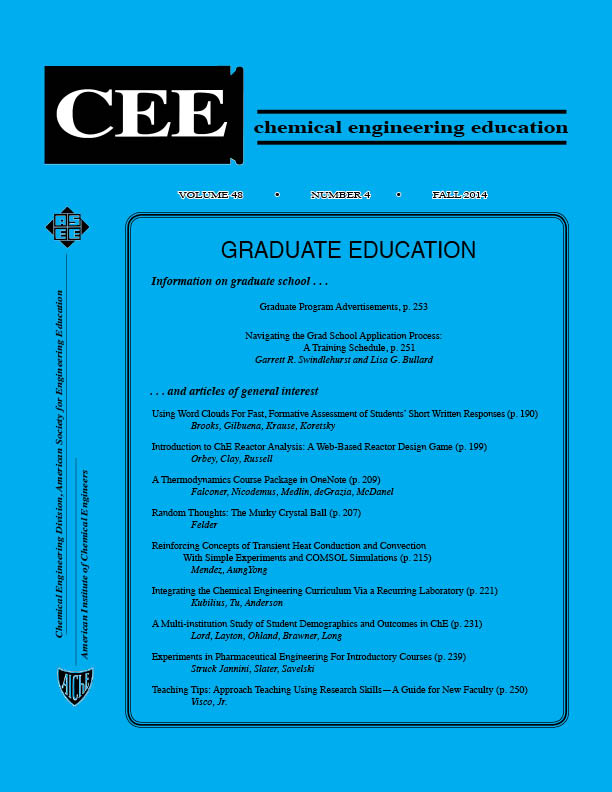A Multi-institution Study of Student Demographics and Outcomes in Chemical Engineering
Abstract
Using a large multi-institutional dataset, we describe demographics and outcomes for students starting in and transferring into Chemical Engineering (ChE). In this dataset, men outnumber women in ChE except among Black students. While ChE starters graduate in ChE at rates comparable to or above their racial/ethnic population average for engineering, women choose and graduate in ChE at similar or higher rates than men of the same race/ethnicity. Trajectories of ChE students differ by race/ethnicity, but gender differences are small compared with the differences by race/ethnicity and the gender differences observed for engineering as a whole and in other engineering disciplines.


